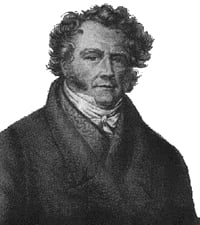Throughout history, monarchs, and other powerful personages have employed agents to act covertly on their behalf, gathering information about others. Knowledge is power and usually the more power an individual possesses, the more he or she wants. The purpose of gathering all that information would usually be to undermine the position of a rival and at the same time protect the employer’s own position.
The agents of these arch-schemers would be directly employed and answerable only to the employer: Usually answerable with their lives! An investigator available to anyone who could afford to pay the fees involved is a much more recent development, as recent as the 19th Century in fact.
The earliest recorded example of a private detective agency is that of a character called Eugène François Vidocq who, in 1833 set up Le Bureau des Renseignements Universels pour le commerce et l’Industrie, in Paris. This snappy title translates into English as “The Office of Universal Information For Commerce and Industry,” which is still rather a mouthful!
Monsieur Vidocq’s rather dubious background; soldier, privateer and criminal, would not be regarded as ideal for a respectable private investigator today but, of course, there were no precedents then. It is fair to say that his practice of employing ex-convicts would raise eyebrows in the modern world too. In fact there was an official police force in Paris at the time and many attempts were made to close down M. Vidocq’s enterprise.
The attempt in 1842 following his success in solving a case of embezzlement almost succeeded. He was suspected of unlawful imprisonment and obtaining money by false pretences. Vidocq was arrested, charged, successfully prosecuted and given a five year prison sentence as well as being fined 3,000 francs. Convinced he had been the subject of a set-up, M. Vidocq appealed, his appeal was upheld and he was released.
Despite all these tribulations, Vidocq seems to have been an innovative character who brought considerable thought and intelligence to his work. He is considered to have been the first to recognise the value of keeping records. He studied both criminology and another revolutionary new science, ballistics and applied them to the investigation of crime. It is also to Vidocq that we owe the idea of taking plaster casts of footprints.
Vidocq and his team had far more involvement in criminal investigation than present day private detectives. Police forces as we know them were really in their infancy in the 19th Century and many people had little confidence in their ability to investigate anything more complicated than a the activities of a pickpocket.

